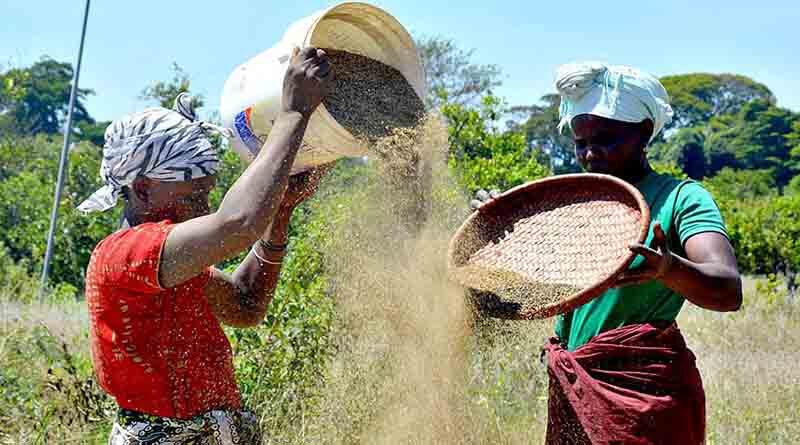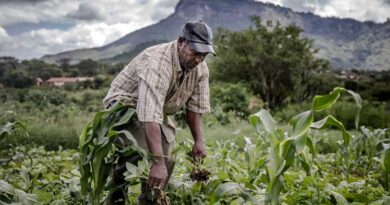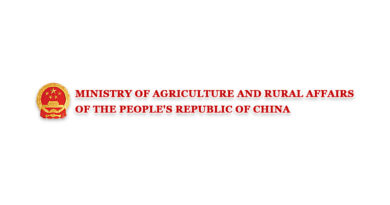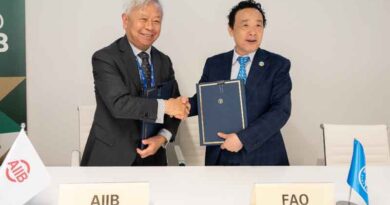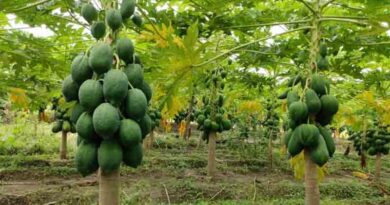Seed systems in focus at FAO conference
03 November 2022, United Nations: Seed systems have come under sharp focus at the first ever Global Conference on Sustainable Plant Production (GPC) organised by the Food & Agriculture Organization (FAO) of the United Nations.
The three-day GPC – with the theme of Innovation, Efficiency and Resilience – provided a forum for FAO members, farmers, scientists, development agencies, policy makers, extensionists, civil society, opinion leaders, and the private sector.
It aimed to focus dialogues on innovation that creates efficient plant production systems with resilience to biotic and abiotic stresses, climate change, natural hazards and geopolitical disruptions.
Quality seeds
CABI’s Dr Monica Kansiime, Deputy Director, Development and Outreach – Africa, gave a presentation entitled ‘Perspectives on the sustainability of seed business models and African smallholder seed supply.’
Her talk came on the first day of the conference as part of a thematic session on seed systems which took a closer look at quality seeds.
It sought to provide perspectives on the sustainability of seed business models – drawing closer attention to smallholder seed businesses and their ability to deliver benefits to seed producers and the wider community.
Dr Kansiime’s presentation drew upon evidence from action research conducted by the CABI-led Good Seed Initiative (GSI) in Uganda and Tanzania (2013-2016) and an impact assessment conducted in 2019.
Great success
The GSI was a great success reaching over one million consumers and growers through agricultural shows and events, cook shows, nutritional outreaches, radio programmes and seed rallies.
Dr Kansiime said, “Well-functioning seed systems can deliver multiple benefits to smallholders: increased productivity, better nutrition, and greater resilience to climate stress.
“However, to function well, seed systems have to offer access to a wide range of farmer-preferred and locally adapted crops and varieties, with seed of acceptable quality.”
She outlined that farmer seed production under both contract and Quality Declared Seed (QDS) models, used during the GSI, proved viable in ensuring access to quality seed of farmer preferred varieties.
“Contract farming creates consistent and lucrative market opportunities for farmers, and due to long term nature of the relationship, seed companies are able to invest in providing access to early generation seed and on-going extension support to farmer seed producers,” Kr Kansiime said.
Barriers addressed
However, she said that employing the QDS model has sustainability challenges due to the reported lack of effective linkages to technical services – such as access to early generation seed, extension support, inspections and seed testing by QDS producers.
She also added that there are weak incentives for medium and large-scale seed companies for non-hybrid crops. For instance, in Tanzania 83% of certified seed production is maize and none are millet, cassava, sweet potato, vegetables or beans, yet are a priority for food security and nutrition.
“There is a need for integrated seed sector development including integrated and inclusive partnerships with key value chain actors, to ensure multiplication and distribution of seeds of different kinds of crops,” Dr Kansiime said.
The GSI, funded by Irish Aid, and implemented with partners in Tanzania and Uganda, was created to strengthen the way that seeds for African indigenous vegetables (AIVs) are produced and distributed to farmers.
Rewards reaped
A CABI study brief has shown that three years on, the GSI is still reaping rewards for farmers in Tanzania.
In certain parts of the country, for example, seed quantities increased from 14 metric tonnes in 2016 to 41 metric tonnes in 2019.
Dr Kansiime said, “Results reveal unequivocally that farmer seed production offers a potentially sustainable solution to the problem of seed supply while providing income benefits for seed producers.
“Farmer seed systems are also important in conserving and multiplying seed of land races and neglected varieties.
“The market-based approach of the farmer seed businesses and partnerships with the formal sector are strong contributory factors to the survival of farmer seed production.”
She concluded by saying that QDS is useful in delivering quality seed in areas less served by the formal sector. But it needs support from government mandated agencies to develop a tailored and appropriate seed system that meets the ever-evolving needs of smallholder farmers.
Also Read: Best Agrolife Ltd subsidiary receives patent for ternary fungicidal effective against Late Blight and Downy Mildew
(For Latest Agriculture News & Updates, follow Krishak Jagat on Google News)

